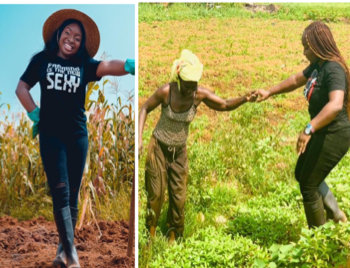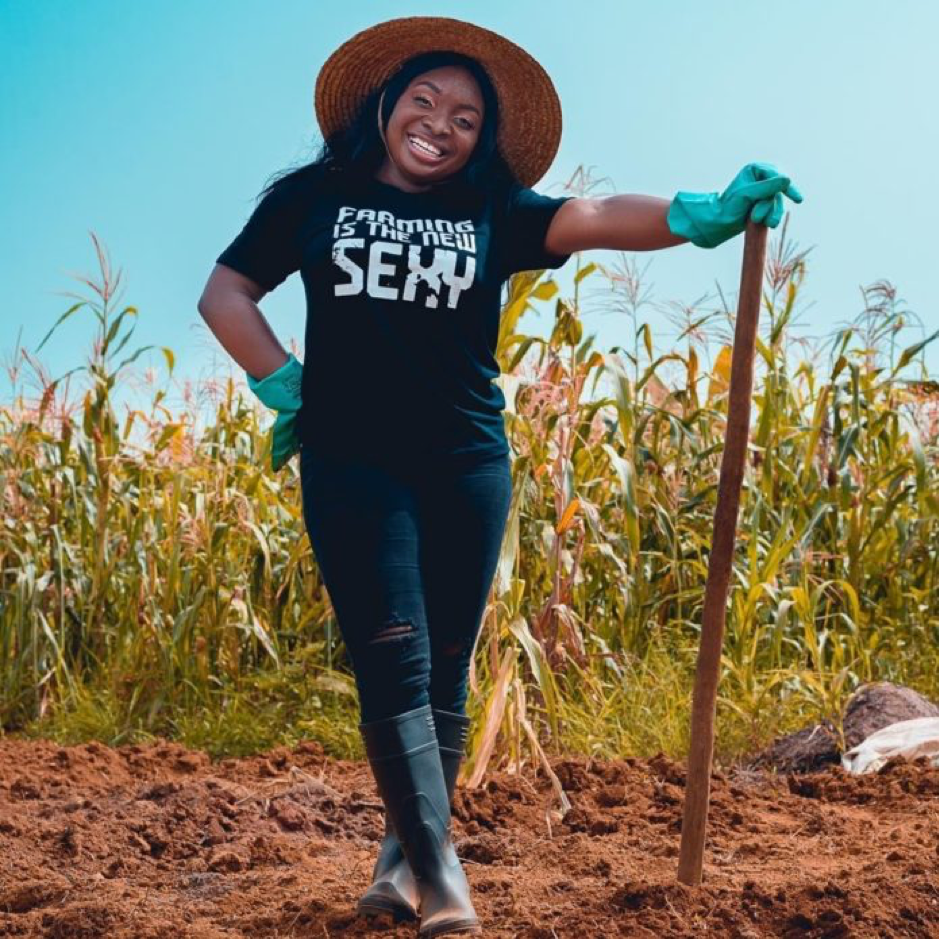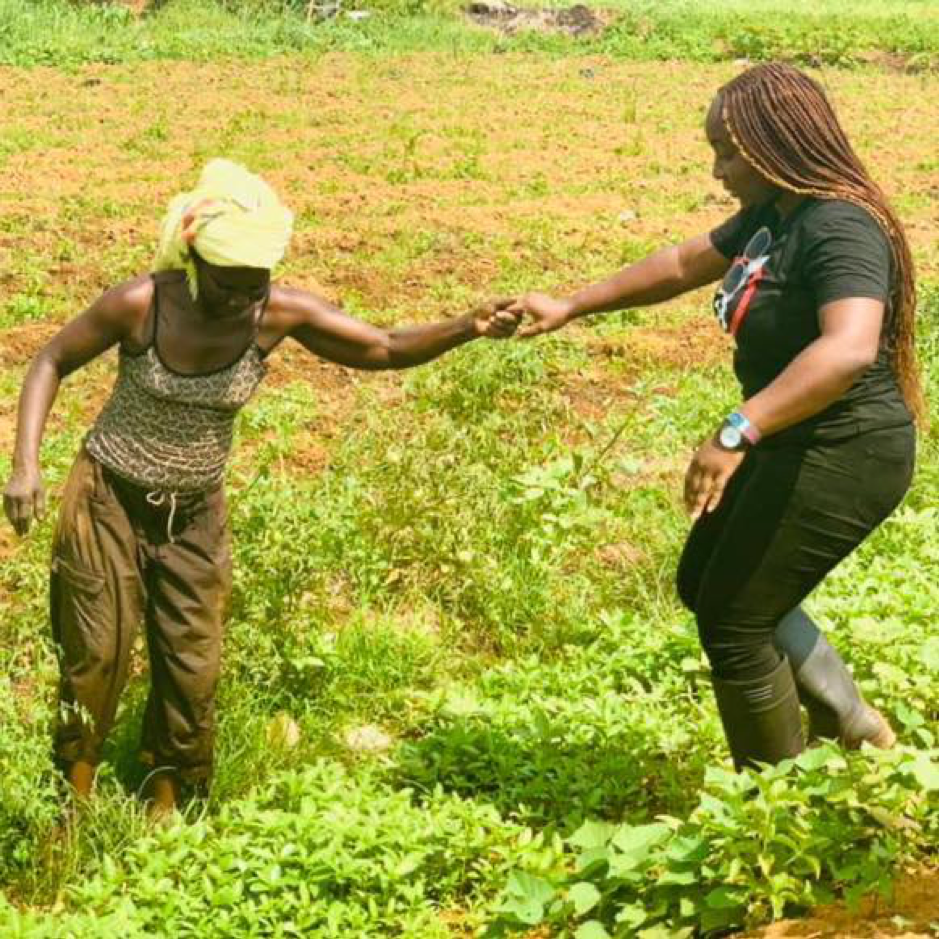
Favour Kanu: I want to be the face of agriculture in Sierra Leone
By: Gabriel Benjamin
Favour Kanu, popularly known as ‘Slay Farmer,’ is an agriculture graduate from Njala University and a certificate holder in SMEs Business Management from the Institute of Public Administration and Management in collaboration with the Netherlands Business Council SL. The Institute works with farmers in the Northern Province of Sierra Leone. In this exclusive interview with Gabriel Benjamin, Favour, who is the Founder and Chief Executive Officer of Slay Farms (SL) Limited, shares her career experiences, activities as a farmer, and how women can take advantage of opportunities in the agricultural sector.

Tell us a little about growing up
I was born in Freetown at Princess Christian Maternity Hospital. In 2006, my late father retired from the civil service. My mother is a housewife. I attended St. Martins Nursery and Primary School, Black Hall Road, Freetown, before proceeding to St. Theresa Primary and Secondary School, Waterloo, where I sat for my National Primary School Examination. I attended Freetown Secondary School for Girls. We started having challenges when I was in JSS II but God was faithful. I sat for my West Africa Senior Secondary Examination in 2011/2012. I gained admission to study agriculture at Njala University. I wanted to become a medical doctor but my father died in 2011 and I had no one to pay my university fees. So, I said, ‘ok… my aim is to help people, if I cannot do that with medicine then I can do that with farming.’ My mother sold everything she had to see me through school. I graduated in 2018. So, I can’t say I had everything growing up but I thank God for everything.
Take us through your previous work experience, if any
Between 2016 and 2018, I worked with the West African Rice Company as Farmer Connector in Kafe Simira Chiefdom, Tonkolili. It was my first job. I formed farmer groups and through the groups, I supported and trained over 100 farmers. Now, I’m in Freetown working with the Produce Monitoring Board as a Quality Control Coordinator.
Agriculture is not often the first choice for women today. How were you able to convince yourself this was the right path?
When I tell people that I have a degree but I’m a farmer, they will be like, ‘you?’ For example, I was seated with some young girls the other day; they expected me to say I worked at the bank or one of those big offices. ‘I’m a farmer,’ I said to them. And they were like, really? I want to be mentioned when people are talking about agriculture in Sierra Leone, in Africa. I want to be the face of agriculture on the Continent. I want people to look at agriculture and see me. I want young people to look at me and want to come into agriculture. I want to make it sexy, attractive, and enviable. That said, I got motivated in Abidjan, and then, I came to Sierra Leone where I met a young man who has a PhD and was working with farmers. I asked him a lot of questions and he answered them. That got me really motivated.

From farming to sales and marketing. What informed the switch?
After my first harvest last year, I was finding it difficult to sell my produce because I had no support, and all the vegetables were ready almost at the same time. I had to take them to the markets to sell. Ah… Of course, we farm to make money, to improve our livelihood, and to help in achieving food security. So, I do the marketing myself.
Do you think Sierra Leone has food security or food-processing and storage problems?
For example, last year I had harvested my vegetables and transported them to Waterloo market. Due to lack of storage facilities, I had to sell them at a cheaper rate although many of them still got perished. So, for vegetables, storage facility is a problem.
What challenges do you face as a young, female agropreneur?
First, is labour. Hiring people has been difficult. For example, there is only one club in the village where I farm. The young men in the village said if I want labour, I will have to hire the entire club, like 60 people… that’s too many. I have to feed them and pay them daily. I told them why not 10? I only want to utilize about 10-acres of land but they refused. I hired 60 of them. The other challenge is seedlings. To have better and improved seeds in Sierra Leone is difficult. I’m not going to mention where I bought my seeds from but some of the seeds didn’t sprout after spending a lot of money to buy the seeds. Discrimination is another challenge… well, that was before, not now that we are making farming attractive and sexy.
Credit: Concord Times



